"DO NOT DESTROY"?!
Come and get me, NRCC. Bzzzzt!
Without even opening the envelope, I can confidently state that it holds a "canvas" replete with ludicrously loaded questions ("Do you oppose the Biden Administration's utter failure to enforce immigration laws?"), thinly disguising a plea for cash. ("To make my views known and allow Republicans to continue fighting Democrats' dangerous agenda, I'm enclosing (check one)…")
Also of note:
-
We have always been at war with the Deep State. Matt Taibbi's latest installment in an ongoing project. Tracking Orwellian Change: New Meanings of "Deep State" and "Working Class". It's part of his effort to chronicle "multitudinous dystopian alterations to American political speech." Sample:
In July of last year David Rothkopf wrote a piece for the Daily Beast called, “You’re going to miss the Deep State when it’s gone: Trump’s terrifying plan to purge tens of thousands of career government workers and replace them with loyal stooges must be stopped in its tracks.” In the obligatory MSNBC segment hyping the article, poor Willie Geist, fast becoming the Zelig of cable’s historical lowlight reel, read off the money passage:
During his presidency, [Donald] Trump was regularly frustrated that government employees — appointees, as well as career officials in the civil service, the military, the intelligence community, and the foreign service — were an impediment to the autocratic impulses about which he often openly fantasized.
This passage portraying harmless “government employees” as the last patriotic impediment to Trumpian autocracy represented the complete turnaround of a term that less than ten years before meant, to the Beast’s own target audience, the polar opposite. This of course needed to be lied about as well, and the Beast columnist stuck this landing, too, when Geist led Rothkopf through the eye-rolling proposition that there was “something fishy, or dark, or something going on behind the scenes” with the “deep state.”
Click through to read how past years' sorta-Marxist lionization of the "working class" is quickly being inverted into the demonization of the "white working class."
-
Any excuse will do. David Harsanyi notices: Media Uses Racist Shooting To Smear DeSantis And Chill Debate
A day after a racist psychopath murdered three black customers at a Jacksonville Dollar General store this week, NBC News informs us that Florida Governor Ron DeSantis’ “policies toward the Black community” are coming “under fresh scrutiny.”
Matt Dixon “reports:”
Florida’s Black community and beyond have been vocally opposed to the DeSantis administration’s focus on wiping out higher education diversity programs, the teaching of institutional racism to public school students, scrutinizing African American history courses and drawing a redistricting map that erased northern Florida’s only Black-performing congressional seat, which included the city of Jacksonville.
What, you may wonder, does that string of completely unrelated left-wing grievances have to do with a shooting? Is the claim here that teaching kids 1619-style pseudohistory or funding “higher education diversity programs” would have changed the mind of a suicidal murderer? I mean, presumably, the shooter was in school when the old Florida AP history course was still being taught, when DEI ideologues still had their state-funded jobs, and when Florida’s only “Black-performing congressional seat” was still a thing.
If you speak against the woke agenda, you're causing murder. Shut up!
-
Good questions deserve honest answers. Here's one from Robert F. Graboyes: Does Plessy Linger Still? It's based on his contribution to a symposium on "Systemic Racism in Education and Healthcare" held by the Liberty Fund last year. Excerpt:
Thomas Sowell and Roland Fryer have investigated and measured the effects of systemic racism. Their analyses stress that (1) The impact of systemic racism on health and other variables is greatly overstated by some in the policy sphere, and (2) The mere existence of disparities does not constitute prima facie evidence of bias. Their work is strikingly exhaustive and persuasive. But purveyors of systemic racism theory are often disinclined to consider such evidence or to debate it dispassionately and honestly. (To be honest, some classical liberals may be too willing to dismiss the idea of systemic racism out-of-hand.)
It's possible to believe two things: (1) Systemic racism is a real problem. (2) People make it worse by overstating it, demonizing honest critics, and recommending authoritarian "solutions".
Another bit:
For some advocates, the philosophy underlying systemic racism is not subject to refutation by logic or evidence. Its tautological, Orwellian nature is beautifully crystallized in a statement by psychology professor Angela Bell: “If you have to ask if you are a racist, you are … And if you are not asking if you are a racist, you are.”
-
My ancestors had the good sense to leave. Brian Riedl and John Gustavsson explain to City Journal readers: Why the U.S. Can’t Be Nordic
Why can’t the U.S. build a social democracy like those in the Nordic countries? Progressives have wistfully asked this question for more than half a century. Why can’t Americans enjoy universal health care, free college tuition with generous universal student grants, universal pre-kindergarten education, and 18 months of paid parental leave? Why don’t policymakers just tax the rich and usher in the social-democratic utopia?
The inconvenient answer is that they can’t. Denmark, Finland, Norway, and Sweden are not quite the utopias that American progressives claim. Key aspects of their economic systems would be unpopular and unworkable in America.
A current bumper sticker in my state reads "Don't Mass Up New Hampshire". Which is punchier than "Don't Sweden Up America", but the same idea.
Fun fact: the latest edition of the Cato report on the Economic Freedom of the World ranks only Denmark (fifth place) above the US (seventh place). Norway is #32, Finland #26, Sweden #33.
-
Don't be "Section Guy". Arnold Kling does a similar thing to Pun Salad: largely recommending interesting things he's seen in his web crawling, adding his own comments. Here's something I liked:
On last week’s Republican debate, Josh Barro writes,
When Vivek Ramaswamy and I were undergraduates at Harvard, students would sometimes talk about the scourge of “section guy.”
“Section guy” wasn’t a specific person, but an archetype — that guy in your discussion section who adores the sound of his own voice, who thinks he’s the smartest person on the planet with the most interesting and valuable interpretations of the course material, and who will not ever, ever, ever shut up.
This sounds like a profile of an ultra-narcissist. But should we be shocked? For politicians these days, extreme narcissism seems to be an advantage. It’s like the voting public’s ideal date is a Dark Triad pick-up artist.
Need to know what the "Dark Triad" is? Wikipedia has you covered, friend.
![[Shred Me]](/ps/media/shred_me.jpg)
![[Amazon Link]](/ps/asin_imgs/B007AJPAPO.jpg)
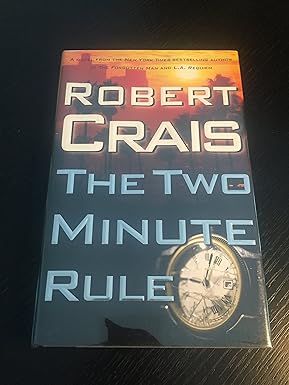
![[Amazon Link]](/ps/asin_imgs/B000FCKS0K.jpg)
![[Amazon Link]](/ps/asin_imgs/B0BPJKCZ8X.jpg)
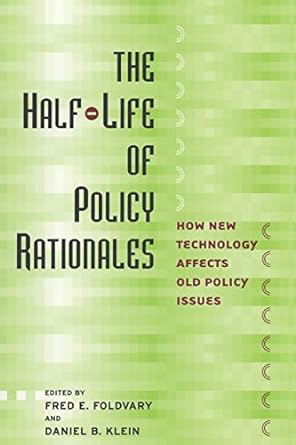
![[Nikki opines on Vivek nononverbally]](/ps/media/Vivek_and_Nikki.jpg)
![[Sing Daisy for me, Hal]](/ps/media/152f555a-23dc-473f-a078-a5caeb1dd15b_800x600.jpg)


![[Canceled]](/ps/media/620f2f4f-9f87-4855-8bf5-1d17d8acc24b_1755x1275.jpg)
![[Amazon Link]](/ps/asin_imgs/B0BSG1Y6F7.jpg)
![[Amazon Link]](/ps/asin_imgs/B08GZYW7WX.jpg)


![[4 stars]](/ps/images/40stars.gif)
![[IMDB Link]](https://ia.media-imdb.com/images/G/01/imdb/plugins/rating/images/imdb_46x22.png)
![[Deep Pockets]](/ps/media/895fcc10-186b-4acc-ba1a-6a69621a4de6_1404x1020.jpg)
![[Amazon Link]](/ps/asin_imgs/B07L2HQ26K.jpg)
![[Amazon Link]](/ps/asin_imgs/1914314395.jpg)
![[Google Drive Img]](/ps/media/220px-Heart_of_stone_poster.png)
![[2 stars]](/ps/images/20stars.gif)
![[Nightmare]](/ps/media/b9662cfc-4a57-4e73-b21c-6d63ab50c78d_1229x893.jpg)
![[Amazon Link]](/ps/asin_imgs/B0C8PTNFMF.jpg)
![[Amazon Link]](/ps/asin_imgs/1631498711.jpg)
![[Amazon Link]](/ps/asin_imgs/0691162603.jpg)
![[Amazon Link]](/ps/asin_imgs/1630691828.jpg)

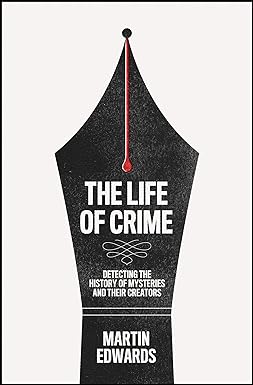

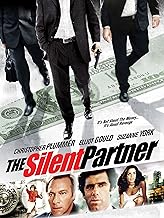
![[Amazon Link]](/ps/asin_imgs/B0BYCP8S8V.jpg)
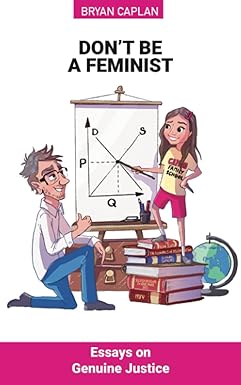

![[3 stars]](/ps/images/30stars.gif)
![[Free]](/ps/media/FreeStuff.jpg)


![[2.5 stars]](/ps/images/25stars.gif)
![[Amazon Link]](/ps/asin_imgs/B07J1XCF39.jpg)
![[Amazon Link]](/ps/asin_imgs/B08HVXPWMP.jpg)
![[Amazon Link]](/ps/asin_imgs/B0C3M48LDW.jpg)
![[Self Inflicted]](/ps/media/4ce6389e-2223-4d44-be9c-d73fd6c2936b_1404x1020.jpg)


![[3.5 stars]](/ps/images/35stars.gif)
![[Figure 3]](/ps/media/gr3.jpg)
![[Figure 3 Fixed]](/ps/media/f23834bd-e528-4b2f-9204-e5dc1f70f779_603x680.jpg)
![[The Blogger and His Dog]](/ps/images/me_with_barney.jpg)



